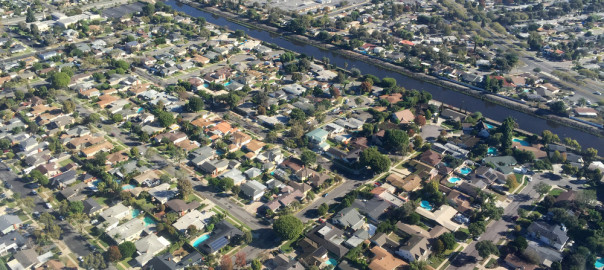Real Estate Investing: How To Tackle The Tough Neighborhoods
By JD Esajian on May 4, 2015
There are lots of real estate deals out there to be had. Many of them are in neighborhoods that scare a good percentage of real estate investors away. So are the challenges really that bad? More importantly, how can you tackle the obstacles that present themselves in these neighborhoods?
The Current Real Estate Investing Landscape
Real estate investing is hot. It’s one of the best ways to make and protect money . In fact, for many, investing is real estate is the only way to keep up and get ahead financially. The market is headed up, and that’s a great thing for most. But it also has many individuals scrambling on the hunt for house deals.
Home prices are going up fast, and the availability of homes can be very limited in some places. If they look good, and are priced right, they sell very fast. There are opportunities, but some investors may need to look further afield for high volumes of deals, and if they want to score dirt cheap deals on buying foreclosure houses.
The data shows that there are still many billions of dollars in defaulted mortgage loans, and foreclosures out there. There are still plenty of foreclosure properties selling cheap. Many under $100,000; and plenty under $20,000. Some even less than $7,000.
However, many of the cheapest properties in the nation are in distressed neighborhoods and can be in poor condition. These issues shouldn’t be underestimated. So what are the challenges? And how can they be championed by real estate investors?
The Lure of Cheap Foreclosures
Is the price, right? Whether starting out looking for a first investment property, starter home to live in, or already experienced and needing a steady flow of inventory; cheap foreclosures can be alluring.
Properties that are so cheap that you can put them on a credit card can be hard to pass up. For others, it is the ultimate way to get ahead financially. If you can buy a home for less than you pay in rent, and pay it off in a year, you are free from mortgages and rent for life. For most investors, it is hard to see how you can’t make money on a property selling for less than $10,000 or even $20,000. You’d think the land would have to be worth more, even if the house isn’t. The perception is that it shouldn’t be hard to make money by renting or reselling these homes. At these prices, you can even diversify pretty significantly. That means lowering risk. Even if you lost on 3 out of 10, you should still be ahead. Some even look ready to be flipped or leased.
So how hard can it be?
The Challenges of Investing in Cheap Foreclosure Homes
So what could possibly go wrong with buying cheap foreclosures?
There can be many challenges with purchasing these properties in urban centers like Detroit, MI, Miami, FL and Cleveland, OH.
This includes:
- High crime rates
- Property management difficulties
- Lack of public services
- Lack of local jobs
- Code violations
Cheap foreclosure properties have been highly profitable for many real estate investors. However, there can be value and growth challenges due to local economics. Cash flow can be unreliable. Properties can be in terrible condition, and there can be personal dangers in being in the field managing properties in a hands on way. Don’t forget that these properties can require additional investments to fix them, make them rentable, and to meet code standards. This doesn’t always require cash. These improvements may be financed. In some cases, local agencies will help offer grants and breaks to improve the area. There may even be some homes which have been substantially improved already.
How to Tackle These Neighborhoods Effectively
So how can real estate investors tackle these neighborhoods and do it safely, and profitably?
Landing these deals doesn’t just require being wired into the market, but acting extremely swiftly with great offers. Don’t forget thorough due diligence and market research. Those that pass on home inspections, title searches and insurance, and walk-throughs are just asking for trouble. This risk isn’t just limited to the price of the property either.
If you don’t feel up to managing these properties yourself, outsource your property management, or leverage a turnkey property investing service.
Tackling these neighborhoods shouldn’t just be done for profit either. There is nothing wrong with making money, or profiting from providing a great and needed service, but everyone would be better off if the investors going into these areas did so with more in mind than just profit.
Whether you really care about helping others, or even just want to maximize your investments, consider creating local jobs and income in the process. Find ways to build up the community. Build, rehab, and provide safe, healthy, affordable, and sustainable housing. If you don’t, it will come back to bite you.